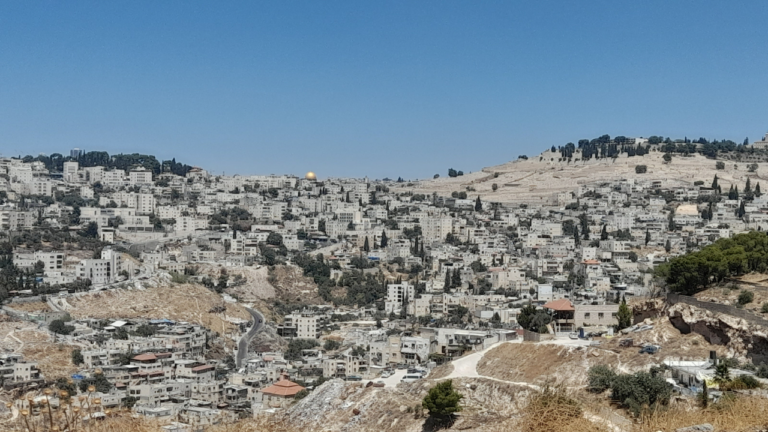Rebbe Chanina and the City of the Deer
Before formerly inaugurating Aharon and his sons as kohanim, Hashem instructs Moshe Rabbeinu to gather all of Klal Yisrael to the opening of the Ohel Moed. Moshe dutifully does so, allowing all of Bnei Yisrael to witness the proceedings inside the courtyard of the Mishkan. Rebbe Elazar, the great student of Rebbe Akiva, notes that this seems impossible. Six hundred thousand men (and possibly another 2.5 million women and children) were gathered together into a tiny opening of the Mishkan?! Clearly, this was an open miracle performed by Hashem so that the sanctification of Aharon could be publicly witnessed by all (Vayikra Rabba, Parshat Tzav 10).
The Midrash explains that this miraculous property of the Mishkan was also expressed in its spiritual successor, the Beit HaMikdash. When Jews, packed shoulder to shoulder on the temple mount would bow to Hashem, every worshipper found that he was amazingly distanced four cubits from his fellow, allowing for his heartfelt prayers to be kept private.
This miraculous expansiveness will express itself in all of Jerusalem when the city is finally redeemed. The Midrash recounts that Rebbe Yochanan once visited his saintly teacher, Rebbe Chanina, finding him studying the third chapter of Yirmiyahu. The Navi prophesizes that in the future, all nations will recognize Jerusalem as the throne of Hashem and gather into her streets in repentance (3:17). Rebbe Yochanan asked his rebbe whether Jerusalem will be able to hold so many people. Rebbe Chanina responded in the affirmative, quoting the verse in Yishayahu that Jerusalem will explosively expand to the right and left.
[Ironically, this verse is the source for the penultimate stanza of Lecha Dodi, where we call upon Jerusalem to burst forth and extol Hashem. Fittingly, the whole practice of Kabbalat Shabbat and referring to Shabbat as a Malka comes from Rebbe Chanina himself, who would garb himself in a fine cloak before Shabbat and welcome the Sabbath Queen (see Bava Kamma 32a).]
A careful inspection of Rebbe Chanina’s teachings reveals that Eretz Yisrael in general also possesses the spiritual expansiveness of the temple mount and Jerusalem. The Gemara Gittin recounts (57a) that a heretic once yelled at Rebbe Chanina, accusing the rabbis of lying when they described the massive population of the cities on Har HaMelekh. How could the mountain have contained tens and thousands of people when it currently can barely hold reeds? Rebbe Chanina responded with the prophecy of Yirmiyahu, immediately following the verse he explained to Rebbe Yochanan, where Eretz Yisrael is described as Eretz HaTzvi, the land of the deer. The hide of a deer expands to incorporate the substantial flesh underneath but after being removed from the body shrinks to a fall smaller size. So too, Eretz Yisrael miraculously expands to shelter the many Jews who gather to her. But when the Jews do not come, the land will “shrink”, hiding its vast spiritual capacity.
Next week, we will be’ezrat Hashem explore the deeper meaning of this “deer-like” quality. But even without understanding the deeper underpinnings, these miraculous traits of Jerusalem and Eretz Yisrael carry a serious rebuke of the Jewish people. The land and holy city respond to us making the first move; they will only express their miraculous capacities and expand to accommodate those who desire to enter. While it is wonderful to pray and pray for the expansion of Jerusalem and that her borders should spread mightily, the holy city will ultimately respond to action. Like the skin of a deer which will expand or retract depending on what is contained inside, she will only extend her borders when there are more Jews to fill her streets. May we soon witness the mass return of the entire Jewish people to Eretz Yisrael and the mighty expansion of Jerusalem.



